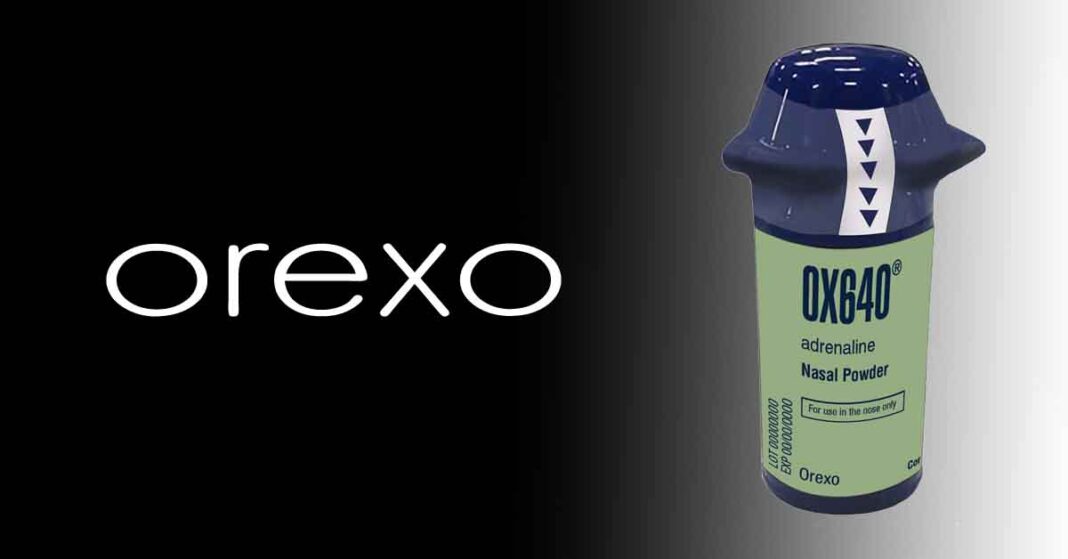Needle-free, nasal delivery of epinephrine has been shown to be an effective and stable treatment for anaphylaxis.
MILWAUKEE – Nasal powder formulations of epinephrine demonstrated superior stability and comparable plasma exposure to EpiPens according to new research being presented at the 2024 American Academy of Allergy, Asthma & Immunology Annual Meeting.
“After more than 100 years of clinical use, a needle-free option for epinephrine finally seems to be within reach, thanks to new delivery technologies combined with efforts from regulatory agencies to find a scientifically sound development path. The nasal amorphous powder technology we have developed provides both effective absorption and excellent stability that may benefit patients, ensuring that the drug is not degraded when carried and is still effective when needed” says lead author, Martin Jönsson, MSc Pharm.
In a 5-period, cross-over study with 40 healthy volunteers, researchers evaluated the bioavailability and hemodynamic response of four 1 mg powder formulations compared to a 0.3 mg EpiPen. In the study, proprietary amorphous powder formulations were developed using spray-drying, and the stability of those formulations was evaluated under accelerated conditions and compared to the EpiPen.
The preservative-free powder formulations were stable under accelerated conditions, with less than 1% total degradation over 12 months compared to 32% degradation for the EpiPen. Powder formulations of epinephrine were rapidly absorbed with comparable plasma levels to EpiPens reached within about 5-10 minutes. The study found that peak and early baseline adjusted exposure levels were also comparable to the EpiPen, ranging from an estimated 83% to 120% of EpiPen levels depending on the formula, and total exposure was about 30% to 60% higher for the nasal powders. Onset of hemodynamic effects, both blood pressure and heart rate, were comparable to those associated with EpiPen usage, with somewhat higher increase in blood pressure. The findings suggest nasal powder formulations of epinephrine demonstrated superior stability and comparable plasma exposure to EpiPens, making them an effective treatment option for patients.
As treatment options for anaphylaxis are currently limited to parenteral autoinjectors, with needle-based administration that may deter timely use, nasal epinephrine powders can address shortcomings of current autoinjectors, and make them a more accessible option for patients in the future.
Visit aaaai.org to learn more about anaphylaxis. Research presented at the 2024 AAAAI Annual Meeting, February 23-26 in Washington, DC, is published in an online supplement to The Journal of Allergy and Clinical Immunology.
The American Academy of Allergy, Asthma & Immunology (AAAAI) is the leading membership organization of more than 7,100 allergists, asthma specialists, clinical immunologists, allied health professionals and other professionals with a special interest in the research and treatment of allergic and immunologic diseases. Established in 1943, the AAAAI has more than 7,100 members in the United States, Canada and 72 other countries and is the go-to resource for patients living with allergies, asthma and immune deficiency disorders.





